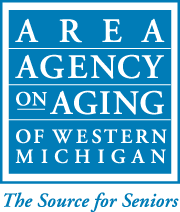Caregiver's Corner: Taking the Step to Talk About Long Term Care Options

By: Ashley Bieber MS
Graduate Intern with the Area Agency on Aging of Western Michigan
The topic of long-term care is not something that most people want to talk about but is something that inevitably, either planned or unplanned, will come up. Although it is not readily talked about, long-term care is something that is thought about often and feared by many. The question of who is going to take care of me when I can no longer take care of myself is on the minds of countless older adults even just this minute. So, while they or even you are thinking about it, let’s go a step further and talk about it.
When people with disabilities or chronic illness begin to need more help regularly than what friends and family can provide due to a disability or chronic illness there are a variety of long-term care options. Long-term care options include a variety of services. This can include assistance with personal care, medication management, meals, homemaking, and/or around-the-clock supervision if needed. The type of care and services provided will vary from person to person based on their unique needs and situation. Due to this, it is important to understand the different kinds of care available so the best fit can be chosen when preparing for the long-term care needs of yourself or a loved one.
Options for long-term care include in-home services, assisted living facilities/homes, and skilled nursing facilities/nursing homes. More information about each is provided below.
In-Home Services: For individuals who decide that they would like to remain in their home but with assistance, there are a variety of options available. Depending on the type of care needed and the available supports many maintain independence at home with the support of friends, family, and other community resources such as the church community or local nonprofits. In addition to this, there are a variety of private pay home care agencies available as well as income-based programs such as MI Choice Medicaid Waiver, PACE, and homemaking support from the Michigan Department of Health and Human Services (MDHHS). Both MI Choice Medicaid Waiver and PACE are programs for people who would otherwise qualify for nursing home placement and in place of that receive care services provided by the program in the home. The MI Choice Medicaid Waiver is a completely home-based program and PACE is a type of hybrid program which provides some services in home and others at their day centers which transportation is provided for. However, both are ways to meet individual needs while remaining at home and there are resources available to help you navigate which in-home service best fits your needs.
Assisted Living: For individuals who need more support than what they are eligible for, can afford, or can be provided at home there is the option of assisted living as an alternative to nursing home care. “Assisted Living” is a term used to describe both adult foster care homes and homes for the aged. These homes usually offer a base level of service or care. This typically includes room and board, housekeeping, 24-hour supervision, medication management, and minimal assistance with personal care. For an additional cost, many homes have additional care options to meet individual needs above this basic level. Homes vary in size from small group homes with just a few residents up to larger apartment or condo community-sized facilities and everything in between. The variety of the different kinds of homes, sizes, and levels of services available in each individual assisted living setting provides many options for long-term care at varying costs. Should this be an option that interests you there are resources available to help you find the options and availability in your area based on your needs and finances.
Skilled Nursing Facility/Nursing Home: The most amount of care and support available for long-term care is found in skilled nursing facilities (nursing homes). In this setting, there are onsite nurses, nurse assistants, social workers, physical therapists, occupational therapists, dieticians, recreational therapists, and medical staff (facility physician, pharmacist, and more). These facilities can be used for short-term rehabilitations where after the stay the person returns to their home or assisted living or long-term care where people stay on a permanent basis. Additionally, people can start in a short-term rehabilitation stay due to illness or injury and choose to stay long-term based on a change in their individual needs and abilities.
Talking about long-term care can be difficult, and the amount of information available can make it seem that much more overwhelming. We are after all each a unique individual with specific needs, wants and abilities, and no option is specifically tailored to be a perfect match for everyone. It is simply not possible. However, it is possible to be proactive in planning for long-term care needs by getting information to help you make an informed decision prior to a crisis situation occurring that may limit your options. It is important to go from thinking about the inevitable need for long-term care to talking about it and asking questions. What is best for me and my loved ones? What will keep me safe, happy, and healthy? Who can help me or who should I talk to about my wishes? What do I qualify for? Some of these questions only you have the answer to and some we can help with. For most of the questions the answers will vary, but the answer to when should you start talking about this and asking the questions is the same for everyone. The answer is, when you start having to think about it, it is time to talk about it.
The next Family Caregiver University class will be held on Wednesday, November 4, 2020: 1:00-3:00 p.m via zoom. The class will focus on Long-Term Care Options. The class will offer more information on the types of long-term care, rights and responsibilities in assisted living and skilled nursing facilities, and proactive ideas for individuals and caregivers. A panel of experts in the field will lead to this discussion.
For a full list of Family Caregiver University classes provided by the Caregiver Resource Network, please call (888)456-5664 or visit www.caregiverresource.net.
Tagged:

